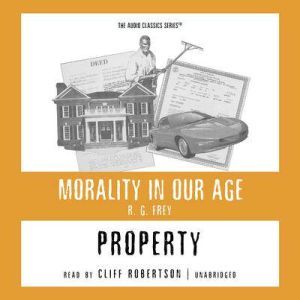Synopsis
Property fundamentally marks how we as individuals are related both to other individuals and to society at large. In its strongest form, property absolutely excludes others from possessing, using, or in any way controlling what we own. However, others have insisted that basic human necessity (e.g. hunger) may overrule the power of individual property. The English philosopher John Locke offered a theory of property against which all others have since been measured. Locke said that personal property is a natural right, given by God. One line of his argument emphasizes the human need for selfpreservation; here property rights are seen as a necessary instrument for peacefully distributing natures bounty. Second (and more famously), Locke defends the earliest formation of property in a series of four steps: (1) every person owns his or her self and capacity to work (i.e. his or her labor); (2) by mixing what one owns (labor) with natures common property, we make other things our own; (3) the consent of others is irrelevant to this process of securing property, and (4) as much and as good of natures bounty must be left for others. Locke says that in later (modern) conditions of scarcity, money allows property to be accumulated without spoilageand therefore without harm to others. Property owners have a right to bestow or bequeath what they own. If all acquisitions and transfers of property have been just, then unequal accumulations of wealth are not immoral. David Hume criticized Locke, insisting that property is not a natural right but rather a social convention that reflects selfinterest and the desire to protect what we own. Jeremy Dentham insisted that only government (rather than society in general) can bestow property rights. Property ultimately involves personal control and security, as often opposed to other individual interests and to the overall interest or advantage of society. This tension is seen in issues like slavery, abortion, euthanasia, organ donation, government regulation, taxation, the power of eminent domain, welfare, and a variety of coercive social programs.



